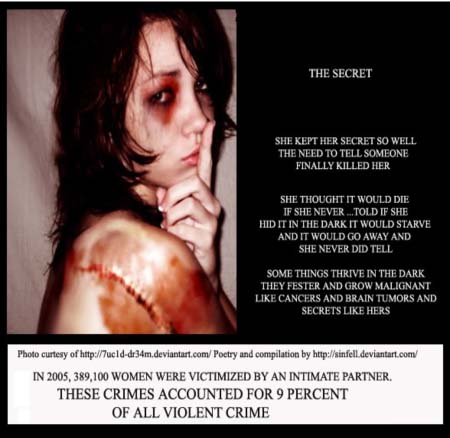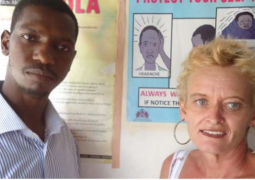
In our today’s edition we are talking about Gender-based Violence (GBV), what it is about, causes, myths and facts.
Gender-based Violence (GBV) is violence that results in, or is likely to result in, physical, sexual or psychological harm or suffering to women, including threats such as acts, coercion or arbitrary deprivations of liberty, whether occurring in public or in private life.
It is violence that people experience on the basis of their gender.
It is important to note that the UN highlights violence against women as GBV and the need to understand VAW within the context of women’s and girls’ subordinate status in society.
While both men and women experience violence, evidence suggests that the risk factors, patterns and consequences of violence against women are different from violence that men experience.
The word gender is used to ascribe differences between men and women in regards to differences in roles, expectations, limitations, etc.
GBV occurs because society created differences between men and women and considers women to be of a low status and men to be of a high status.
When GBV occurs it inflicts harm to the victim and hurts other people around the victim as well.
GBV is about socially determined power relations and power imbalances between men and women.
GBV occurs because society gives one gender power more than the other. It is about how one gender uses their power over others to control another.
All acts of GBV are intended to control the victim’s right: GBV is an abuse of human rights. It violates the rights of the victim.
Gender-Based Violence is a pervasive public health and human rights problem throughout the world, but the patterns and prevalence of violence vary from place to place.
GBV violates several international and national human rights instruments and laws.
Sexual and gender-based violence encompasses a wide variety of abuses that includes sexual threats, exploitation, humiliation, assaults, molestation, domestic violence, incest, involuntary prostitution, torture, insertion of objects into genital openings and attempted rape.
Female Genital Mutilation and other harmful traditional practices including early and forced marriages, which substantially increase maternal morbidity and mortality, are forms of sexual violence against women and girls which cannot be overlooked nor justified on the grounds of tradition, culture or social conformity.
There is a tendency to think that violence only happens to married women or women of reproductive age. Violence against women happens to all women of all ages and can happen to a woman throughout her life cycle.
There are myths and stereotypes about domestic violence and sexual assault that you should know and be careful of whether you are a woman or a man.
This myths and stereotypes can be confusing sometimes but think twice before you decide.
It is a myth that if women are treated as equal to men in a relationship, it causes more domestic violence.
The constitution of The Gambia clarifies that “women shall be accorded full and equal dignity of the person with men” section 28(1).
It is a myth that when women have an income-generating job, they disrespect their husbands. They should therefore not be allowed to work.
The fact is that women’s income is crucial to the social and economic wellbeing of a family. It is not a privilege or a favour to allow women to work.
It is their right as defined in the 1997 constitution of The Gambia. Everyone has the right to work. “Women shall have the right to equal treatment with men, including equal opportunities in political, economic and social activities.” Section 28(2).
It is a myth that women have taken the issue of equal rights with men wrongly: they disrespect men and think it is an opportunity to misbehave.
The fact is that some men and women have misunderstood the issue of equal rights. Equal rights means that women and men as human beings have equal value and worth, equal opportunities, fairness and justice before and under the law as clearly stated in the 1997 constitution of The Gambia, “all persons shall be equal before the law.” section 33(1).
It is also a myth that reporting a violent husband only causes embarrassment to a man and a woman, so it is better to endure the violence than to face embarrassment from the community.
The fact is that reporting violence cases is a way of seeking a solution to a problem. It is important that people who use violence take up responsibility for their behaviours; keeping quiet when injustice is being done to someone does not solve the problem.
It is also a myth that the Women’s Act 2010 will break up families. The fact is that the act comes to protect those who are abused and to ensure safety and harmony at home for every Gambian as defined in the constitution.
Relationships break up due to the abuses that happen and when one party or both parties feel that there is nothing more meaningful in the relationship.
If a relationship turns into a source of stress and pain then people break up.
GBV is more dangerous than HIV, so you the offender should know that the end result of GBV is death.
Women and girls are our sisters, daughters, wives, aunties, nieces and mothers; these are people that are so dear to our hearts, why hurt them? Real men think before acting.




